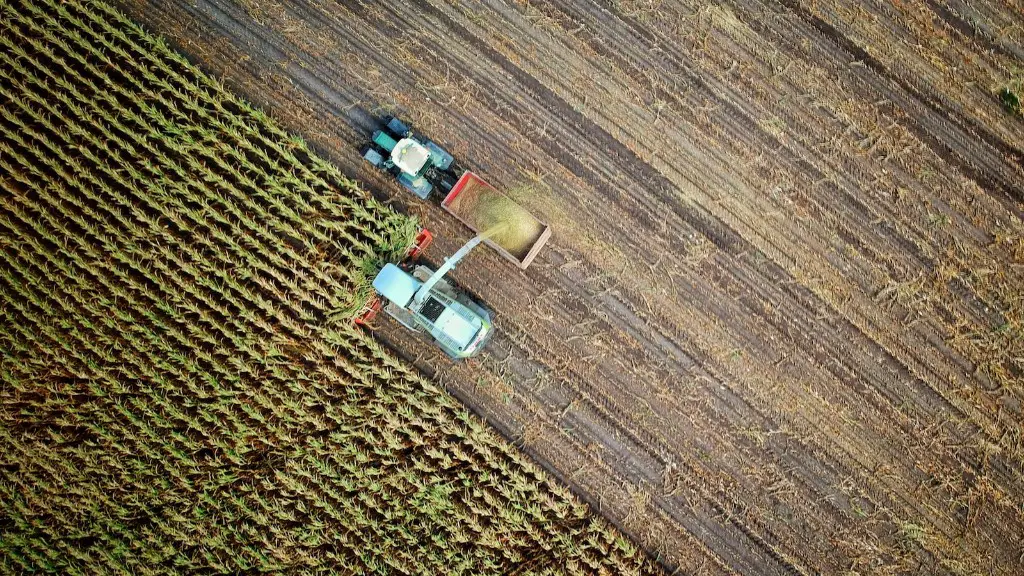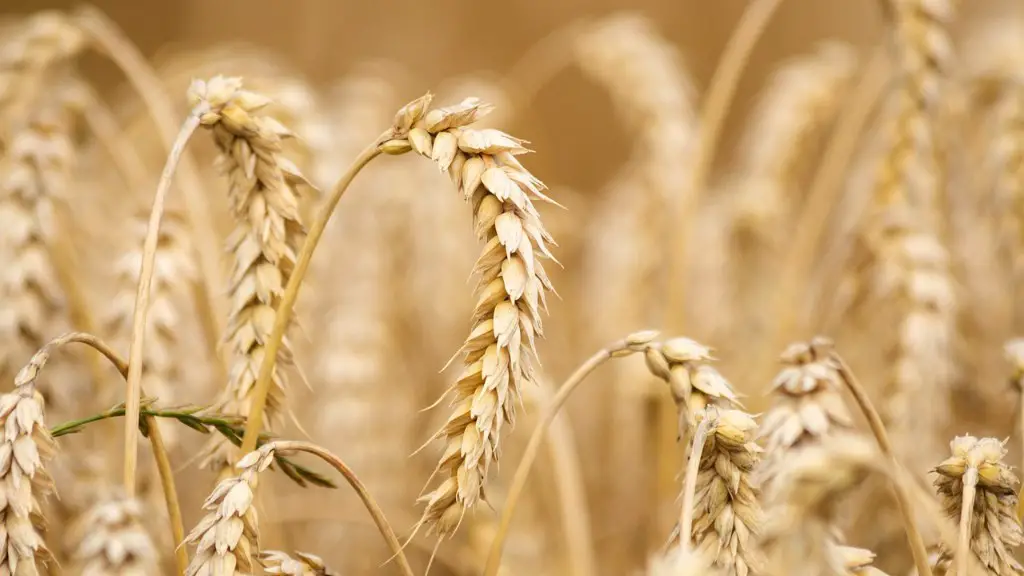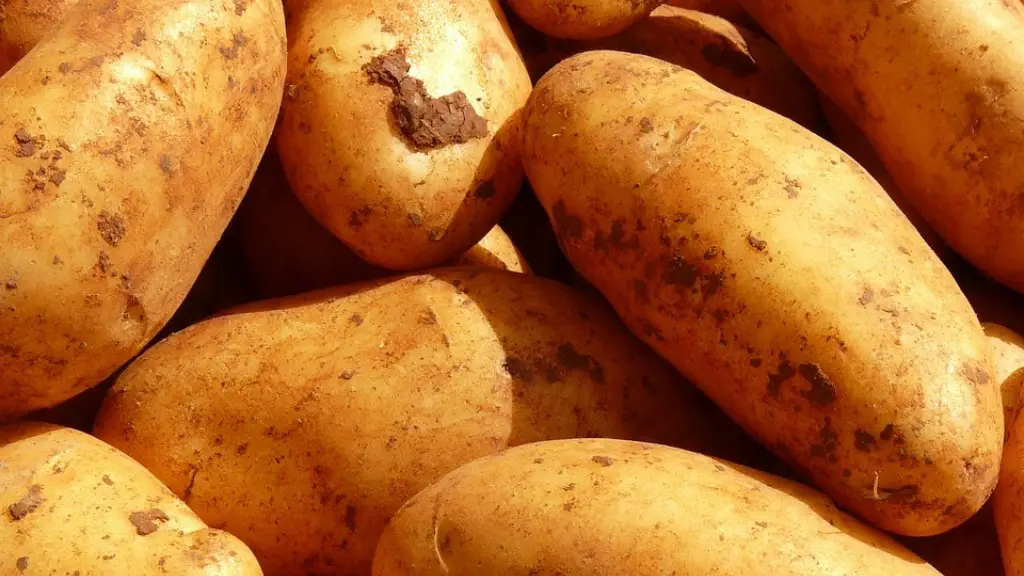Weed management is important in agriculture because it helps to regulate and maintain the growth of crops. It also helps to protect against weeds that may harm the quality of the crop.
Weed management is important in agriculture as it can help farmers to achieve good crop yields and to prevent the spread of weeds to other areas.
What are the two main goals of weed management?
In order to preserve the efficacy of herbicides, two things must happen: 1) adoption of integrated weed management, and 2) shift the goal of weed management from protecting crop yields to minimizing the size of the weed seed bank. The first requires a shift in behavior, the second a change in attitude.
Weed control is vital to agriculture, as it can decrease yields, increase production costs, interfere with harvest, and lower product quality. Weeds can also impede irrigation water-flow, interfere with pesticide application, and harbour disease organisms. Therefore, it is important to control weeds in order to maintain a healthy and productive agricultural system.
Why are weeds bad for agriculture
Weeds are plants that grow in an area where their growth is not desired by a farmer. They can either limit or completely disrupt the growth or production of crops by competing with crops for resources like water, nutrients, and sunlight.
Weed control is important for farmers to be able to grow crops profitably. There are various methods of weed control, including prevention, eradication, and suppression. Prevention involves keeping weeds from invading fields in the first place. Eradication involves removing all weeds from a field. Suppression involves limiting the growth of weeds so that they do not compete with crops for resources.
What is weed control management in agriculture?
Weeds are one of the biggest problems farmers face. They compete with crops for water, sunlight and nutrients, and can reduce yields significantly. Control of weeds during land preparation is crucial to reduce the amount of weed pressure in the field.
Land preparation should start 3-4 weeks before planting. Plowing destroys weeds and remaining stubble from the previous crop. Weeds should be allowed to grow before the next cultivation. This will help to reduce the number of seeds that are present in the soil and will make it easier to control them.
Weed control is an important part of crop production. Effective preventative weed control techniques can help reduce the prevalence of weeds. In turn, lowering the potential for yield loss and the need for managing weeds within the crops will likely improve economic returns.
What are the effects of weed control on the environment?
The use of herbicides to control weeds can have both positive and negative effects on vegetation and soil. On the positive side, herbicides can effectively kill weeds that compete with crops for resources. This can lead to increased crop yields. On the negative side, herbicides can also kill beneficial organisms, pollute soil and ground water, and contaminate livestock pasture. This can lead to reduced crop yields and even the death of animals that feed on contaminated pasture.
Herbicides are a type of pesticide that are used to kill or control plants. They work by either speeding up, stopping, or changing the plant’s normal growth patterns. This can affect the plants by drying out the leaves or stems, or by making it drop its leaves. Herbicides are a necessary tool for controlling weeds, because if left unchecked, they can quickly take over an area and crowd out native plants.
What are 3 problems caused by weeds
Weeds are plants that are not welcome in our gardens and yards. Unfortunately, they can do more than just take up space. Weeds can provide hiding places for pest animals, which is a risk to our native bird species. Weeds can also carry diseases, alter the soil pH and use more water than native plant species.
Weed management principles are important for keeping landscapes healthy and functional. By preventing weeds from getting a foothold in the first place, eradicating them when they do appear, and controlling their spread, we can reduce their negative impact on our ecosystems.
What is the best weed management strategy?
It’s important to remember that repeated applications of post-emergent herbicides may be necessary to successfully reduce weed competition. In many cases, the cheapest and easiest way to achieve good weed control is to grow herbicide-resistant corn, cotton and soybeans, and to use a non-selective herbicide for post-emergent weed control.
Preventive maintenance is a type of maintenance that is performed in order to prevent assets from breaking down. The goal of preventive maintenance is to lengthen the lifespan of assets, lower the risk of breakdowns, increase efficiency, decrease unplanned downtime, promote health and safety, boost customer satisfaction, and save money.
What is the goal of weed management in organic crop production
As a result of this focus on weed prevention and management, organic systems are often able to maintain weed-free conditions and prevent yield loss.
Weeds can be a big problem for farmers, as they can often get mixed up with the farm produce, despite the best efforts of the farmhands and the farmer to separate them. This can reduce the quality of the produce and affect the price and patronage of the farm produce. Weeds can also affect farm animals, who may fall sick from eating the poisonous seeds of the weeds.
What are the disadvantages of weeds on crops?
Weeds can harbour problem insects and crop diseases. For instance, mustard-family weeds can carry over canola diseases, making rotation a less effective tool for disease management. Immature weeds can interfere with harvesting operations. Weed seeds in harvested crops cause dockage and increase risk of spoilage.
Weeds are a big problem for farmers because they compete with the crop for light, nutrients and moisture. Some weeds may also release toxic chemicals, which can adversely affect crop growth. Additionally, if weeds are present during harvesting, they can reduce crop quality and appearance.
Warp Up
Weed management is critical to agriculture for a variety of reasons. Weeds compete with crops for water, sunlight, and nutrients in the soil, which can lead to reduced crop yields. In addition, some weeds are capable of harboring pests and diseases that can infect crops, further reducing yields and quality. Finally, some weeds produce large quantities of seeds that can persist in the soil for many years, making future weed problems more difficult to control.
Weed management is important in agriculture because it helps farmers to ensure that their crops are healthy and productive.Weeds can compete with crops for water, nutrients, and space, and they can also harbor diseases and pests that can damage crops.By controlling weeds, farmers can help to improve the yield and quality of their crops.





